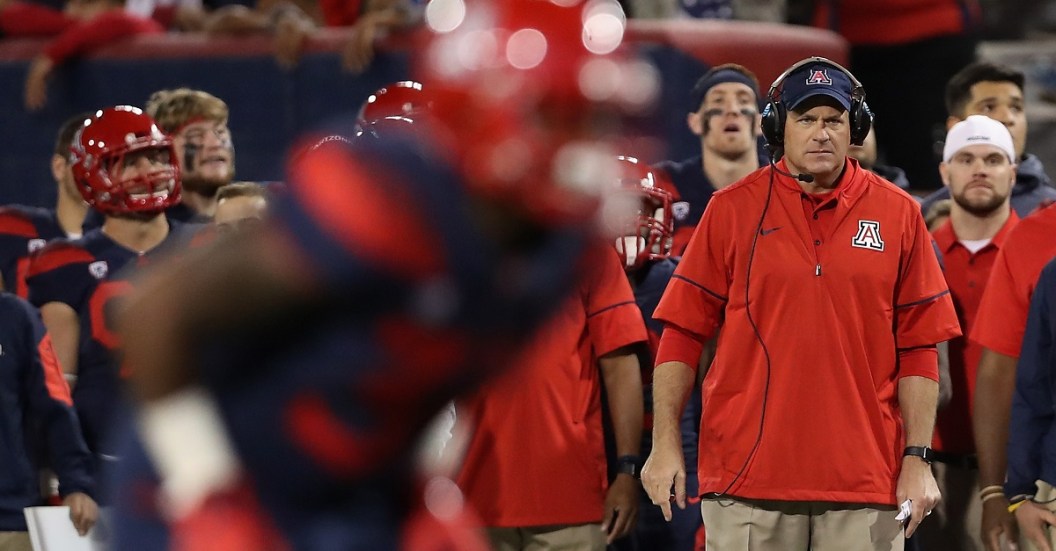Things aren't looking good at Arizona, and that's not even considering the fact that not every assistant coach was apparently not directly notified that Rich Rodriguez had been fired,
Videos by FanBuzz
It's a bad situation, seeing a coach get fired in the midst of a sexual assault allegation that he vehemently denies, but it's going to get even worse for the Wildcats — and the NCAA for that matter — when considering the recruiting implications of the decision.
The Wildcats signed 16 recruits to their 2018 class during the NCAA's new early signing period, which now presents a big problem for those recruits — because the head coach they committed to, and likely much of his staff — won't be there in 2018 and beyond.
Without the early signing period, those recruits would still have a month and some change to de-commit from Arizona and make another decision. That process becomes a lot harder once a National Letter of Intent is signed, though, and traditionally it involves the signee's school signing off on the breaking of the NLI and a transfer — including a loss of eligibility.
The NCAA would look terrible for enforcing those rules in this scenario, though, and as Paul Myerberg of USA Today points out, there's really only one suitable option here:
NCAA D1 Council faces a conundrum here but there’s only one answer: Every player who signs early and then sees his head coach/coaching staff fired (like Arizona) should be released from his NLI and allowed to sign on traditional NSD in February.
— Paul Myerberg (@PaulMyerberg) January 3, 2018
The NCAA doesn't have a strong history of making the right move for players so it will be interesting to see if this scenario does play out as mentioned above.
It's worth noting that current players are allowed to transfer without penalty if a program is found to have committed NCAA infractions and comes under sanctions, so it would make sense if this were to be a similar case.
Of course, that opens up a can of worms for schools and really forces their hands into making coaching changes before the early signing period instead of after, but this was a change the NCAA wanted to see and now the organization — and it's schools — will have to reap both the benefits (recruiting media coverage in December) and the potential pitfalls.
